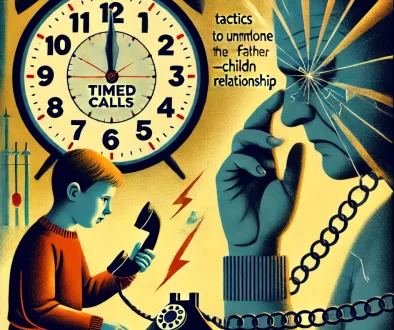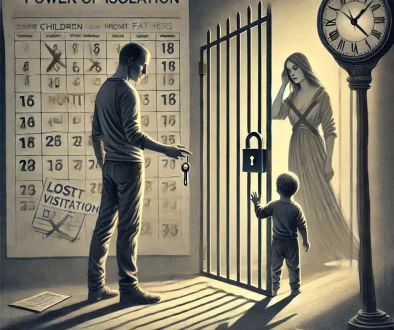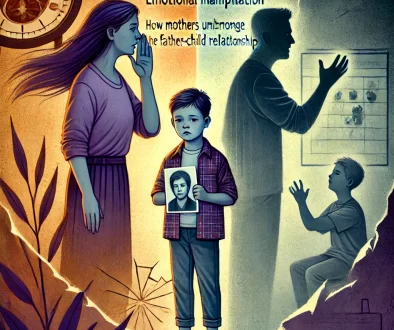The Silent Suffering: Fathers and Post-Divorce Mental Health Neglect
While much attention is rightly focused on the well-being of children during and after divorce, the mental health struggles of fathers, particularly in the face of parental alienation, are frequently sidelined. This societal blind spot not only perpetuates the suffering of these fathers but also undermines their ability to be effective parents.
Divorce is undoubtedly a challenging experience for all involved, but fathers often find themselves grappling with unique burdens. Amidst the emotional fallout, financial obligations, and redefined family dynamics, the mental health of fathers frequently takes a backseat. Society’s expectations of stoicism and emotional resilience place undue pressure on men to suppress their feelings and soldier on, even in the face of profound emotional distress.
Parental alienation adds another layer of complexity to the already arduous journey of divorce for fathers. This phenomenon, in which one parent undermines the child’s relationship with the other parent, can have devastating effects on fathers’ mental health. Whether through subtle manipulation or overt hostility, parental alienation erodes the bond between father and child, leaving fathers feeling isolated, powerless, and emotionally battered.
The consequences of neglecting fathers’ mental health post-divorce are far-reaching. Not only do these fathers suffer in silence, but their ability to effectively parent is also compromised. Mental health struggles can manifest in various ways, from depression and anxiety to anger and detachment, all of which can impair a father’s capacity to provide emotional support and stability for their children. In the long term, untreated mental health issues can perpetuate a cycle of dysfunction, affecting both the father and the children.
It’s time to shatter the stigma surrounding fathers’ mental health and prioritize their well-being in the aftermath of divorce. This requires a multifaceted approach that involves destigmatizing help-seeking behaviors among men, providing accessible mental health resources tailored to the needs of divorced fathers, and reforming family court systems to recognize and address instances of parental alienation.
First and foremost, we must challenge outdated notions of masculinity that equate emotional vulnerability with weakness. Men must feel empowered to seek support for their mental health without fear of judgment or ridicule. This necessitates fostering open dialogue about men’s mental health issues and promoting avenues for support, such as therapy, support groups, and helplines.
Additionally, mental health services must be more readily available and specifically tailored to the unique experiences of divorced fathers. This includes providing resources that address the intersection of divorce, co-parenting challenges, and parental alienation, equipping fathers with the tools to navigate these complex dynamics while prioritizing their mental well-being.
Furthermore, family court systems must be vigilant in identifying and addressing instances of parental alienation, ensuring that fathers are afforded the opportunity to maintain meaningful relationships with their children. This may involve implementing protocols for early intervention, providing education and training for legal professionals and mental health practitioners, and prioritizing the best interests of the child above all else.
I’m Randy Morano—a father, author, and staunch advocate for parental alienation awareness. My journey through the depths of parental alienation has transformed me into a passionate advocate, dedicated to shedding light on this overlooked form of emotional abuse.
As a survivor, I understand the profound impact of parental alienation firsthand. Through my writing and advocacy efforts, I aim to raise awareness, empower others, and provide support to families in need. Join me in the fight for change and hope.



